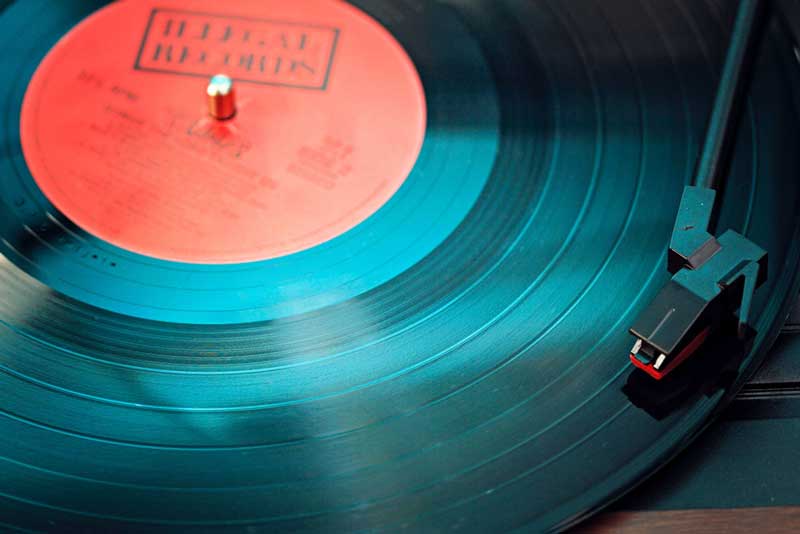Music lifts the spirits and the right playlist can certainly push you through your workout. Studies have shown music can help you lift more and work out harder.
What works for you may not work for another. For most people it’s a matter of personal choice.
The Rocky soundtracks were the go-to in the 70s and 80s. Motivation on a stick. Even now for retro value they can still help you get pumped.
On the flip side some of the music aired across gyms can make your ears bleed. You can’t please them all, and for this reason many people bring their own buds.
We all know our bodies are built or reduced during the recovery phase. But new research says music can play its role in bringing your needle back down quicker to zero.
The faster your heart rate and blood pressure returns to its baseline after a workout the sooner you start to recover.
As soon as you hit the 30 plus mark it’s in your best interests to get into the rehab phase as quick as possible.

After the battle is fought no need to keep running in the red zone.
Recovery is now a large part of the muscle building formula. It enhances your ability to produce muscle. Nothing can happen until your body repairs itself. You will still be able to function if you overtrain, don’t eat enough macros and have low quality sleep.
But if you improve in each of these areas you improve the overall organism, which means more muscle, more vitality, better health. Eat, train and recover. Simples.
Tempo & Volume Key To Speeding Up Recovery Process Post Exercise
To speed up the recovery process you need to go slowwwww, UNWIND.
Drop down the tempo to a soothing relaxing bpm. No more high nrg metal or techno straight after your routine.
Fine during it, uh-uh after.

Barry White should maybe be kept for the bedroom.
Drop the volume, after 60-90 mins of sensory overload you need to soothe your aural and physiological senses. Fast paced loud music raises your bpm and energy levels. This needs to be reversed after a workout.
Naturally your body and mind will cool down and your heart will stop pumping as fast. Nature will take its course. But if you induce a calm environment you can get straight into the process.
3 Minute CoolDown
A research study conducted by Brunuel University London, East Central University Ada & Loughborough University, all in England measured the recuperative effects of music with tempo and loudness as the variables.
A control group with no music was used to contrast the results.
They measured bpm, saliva, blood pressure and cortisol levels (stress hormone) and whether music can soothe the body faster into recovery mode.
The Experiment
42 students were split into 2 groups, equally male and female. After 30 minutes of strenuous cardio performed on an exercise bike each participant was placed in a chair and left to recover for 3 minutes.
Each student listened once to sedative music with a slow pace of 70 bpm.
Next high tempo 130 bpm music was played after the cardio session.
Finally, the exercise routine was repeated and this time no music was played as the participant sat in a chair to recover.

The Results [Get Stronger Faster With Relaxing Music]
The group who listened to high tempo music had a larger increase in cortisol. Cortisol is good for a short while after a workout as it has anti-inflammatory effects that are good for swelling reduction and tissue repair.
You don’t want this phase to continue too long though as it will raise your stress levels by keeping you in full combat “fight mode” which elevates your blood pressure and keeps you on high alert.
Fast paced music arouses your heart rate and blood pressure, which prevents you from moving immediately into recovery mode, even as you sit in passive recovery.
It’s proof that your body follows your mind. Once you calm down the senses your body will wind down, the nuclear powerplant will lower it’s energy production and move to a neutral phase.
Published author, sport & exercise psychologist Costas Karageorghis has researched the neurophysiological, psychophysiological and psychological effects of music on exercise and recovery in sport. He’s worked with Nike and Sony with professional athletes. He has also researched the effect of music on Parkinson’s disease.
Now get this he has collaborated with leading soprano Laura Wright to release an albulm aptly named, The Sound of Strength. He has found that uncomplicated relaxing music, that is music without a lot of rhythmical tempo and pitch changes, works best for enhanching your recovery.
Learn more here.
Give the recovery phase a Head Start
Research shows its better to listen to music than not if you want to get straight in to repair mode. The volume and tempo has to drop.
Flip your adrenalin switch to off. Lower your revs.
Your combat in the gym is over. You need to come back ready to fight another day. Like all things in bodybuilding it correlates to manipulation.
If you want to expedite your bodies full recovery capacity, after an intense gym session, choose relaxing music straight after your cooldown. Who doesn’t want more rest?
A good time for some chillaxed music is on your drive or walk home from the gym. If you like to stretch or foam roll straight after your workout this can be a good time to start.
Coax your body into the rebuild and repair shop with relaxing music. It could be pan pipes for one, sitars for another, it doesn’t matter, whatever you like to wind down to.
One man’s racket is another man’s rhythm.

